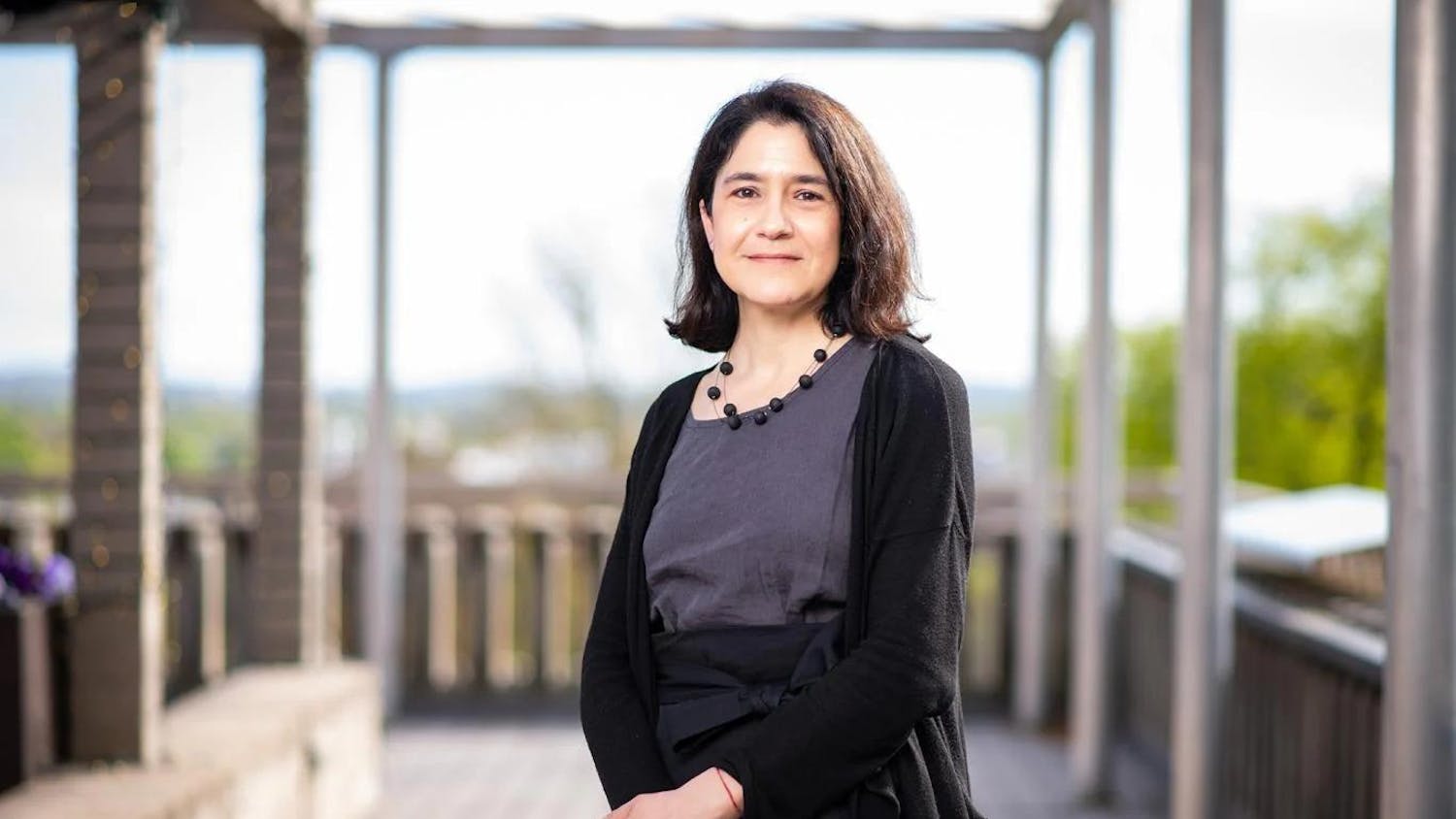Miguel Ángel Moratinos Cuyaubé, the former foreign minister of Spain, spoke about the complicated nature of the Middle East peace process and criticized past pitfalls and missed opportunities at an event in a mostly-full Alumnae Lounge last night.
The event was sponsored by the Education for Public Inquiry and International Citizenship (EPIIC) program in collaboration with the Institute for Global Leadership. Moratinos discussed the significance of the 100th anniversary of the Balfour Declaration, which pledged support for the creation of a national Jewish homeland in Palestine.
Moratinos has extensive experience in peace negotiations, having held positions including Director of the Institute of Cooperation with the Arab World,General Director of Foreign Policy for Africa and the Middle East, Spain’s Ambassador to Israel and European Union Special Representative for the Middle East Peace Process.
At the event, Moratinos was awarded the Dr. Jean Mayer Global Citizenship Award to recognize his commitment to world peace and engagement in international affairs. As he accepted the award, Moratinos emphasized the importance of being a global citizen.
He began his talk by pointing out that the world is still lacking a concrete road to peace in the Middle East region, but expressed hope for the resolution of regional conflicts in the future.
“I’m still convinced that peace is possible in the Middle East,” Moratinos said.
Moratinos identified several missed opportunities that prevented the establishment of a lasting peace in Palestine and in the Middle East, listing diplomatic mistakes that occurred during different negotiations and peace conferences throughout history. Moratinos emphasized that both Israel and Palestine, along with many members of the international community, are to blame for these missed chances.
Moratinos also highlighted the importance of looking to the past to understand the roots of today’s conflicts in the Middle East, and criticized the absence of historians as advisors to influential politicians. According to Moratinos, historians could play a valuable role as diplomatic tools because they can remind politicians of how conflicts began and how best to deal with these problems at their origins.
“If we want a diplomatic solution, let’s use diplomatic instruments,” Moratinos said.
Moratinos explained the numerous and complex factors that have fueled conflict in the Middle East, including economic, religious, political and cultural interests of not only Middle Eastern countries, but also other major world powers such as the United States.
“I think the Middle East is of vital interest to all of us,” Moratinos said.
Moratinos lamented several obstacles that prevented regional actors from reaching an agreement, such as former President Bill Clinton’s failure to push for another successful meeting between Israel and Palestine after the Camp David summit.
He also noted a dramatic shift in priorities that occurred after the Sept. 11 attacks. In particular, he said the international community abandoned the objective of solving the Israeli-Palestinian conflict and turned its attention to matters of terrorism and international security, which were seen as more direct threats.
Moratinos discussed the significant changes that took place in the Middle East after the Arab Spring. He said that, because of these changes, negotiators cannot continue using old strategies to broker a peace agreement, and they must update efforts to keep up with the shifting political climate in the region.
“The Middle East is a very complex and a very difficult area," he said. "There is no common security system for the region."
In analyzing the conflict in Syria, Moratinos emphasized that it is absolutely necessary to alleviate the suffering of the Syrian people before attempting to remove President Bashar al-Assad from power. From there, Moratinos stressed that even before the world can worry about removing al-Assad, a clear political plan for the country post-Assad must be devised.
Moratinos called the current devastation in Syria a failure of international diplomacy, partially caused by repeated unsuccessful military action coupled with a lack of international cooperation.
“Instead of fighting with a common enemy, we are fighting among ourselves,” Moratinos said.
In order to solve the Israeli-Palestinian conflict, Moratinos said that Israel and Palestine must recognize each other as legitimate states, and the rest of the international community must do the same. According to Moratinos, this will facilitate more official and productive negotiation. Moratinos argued that the two-state solution is still the most viable possibility for a lasting peace.
Furthermore, Moratinos criticized the use of “drone diplomacy" dominated by action at a distance and military operations, arguing that it is ineffective in solving problems.
“Diplomacy is now done by distance, but not on the ground. We don’t meet with the people...diplomacy has to be on the ground," Moratinos said. "We have to continue flying to the Middle East, and identify correctly what the concerns are."
Former Foreign Minister of Spain proposes strategies for Middle East peace

Miguel Ángel Moratinos Cuyaubé, former Foreign Minister of Spain, talked about his experience with diplomacy in the Middle East in Alumnae Lounge on April 24.





